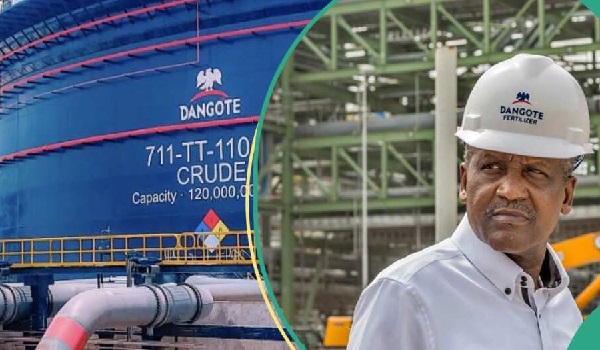Dangote Group and Chief Executive Officer, Dangote Petroleum Refinery, Alhaji Aliko Dangote has said Petrol will roll out from his Refinery next month.
According to him, the crisis over supply of crude from the International Oil Cooperations (IOCs) has been resolved following the intervention of the Nigerian National Petroleum Company Limited (NNPCL) and the federal government.
Addressing media executives during a tour of the Dangote Petroleum Refinery and Petrochemicals in Ibeju Lekki local government area of Lagos state, Dangote said that the crude supply challenge, which affected the supply of petrol from the refinery, was resolved last week.
Dangote expressed hope that the authorities and stakeholders will abide by the provisions of the Petroleum Industry Act, PIA.
He said that the refinery’s fertiliser unit would resume export in two weeks due to efforts to meet local demand this farming season.
This would give farmers more access to fertiliser for their farm products.
Dangote said that there was a massive request for fertiliser from Nigerians and the rest of Africa, so his group had no choice but to respond positively
He also lamented that the delay in securing a site for the Dangote Petrochemical Facility in Ogun State resulted in a $500 million loss for his conglomerate.
Dangote attributed the financial setback to the protracted process of acquiring Olokola land for a petrochemical facility on the $2.5 billion initial drawdown on bank loans.
He expressed disappointment over the bureaucratic hurdles encountered, which significantly impacted the project timeline and overall costs.
“The three years and eight months delay by Ogun State Government over Olokola land for petrochemicals facility costs us $500 million,” Dangote said.
He said a total of $25 billion investments have been made in petrol refinery and fertilizer plant by the Dangote group over the past 10 years.
Located in Lekki Free Zone, Lagos, Dangote Refinery is expected to produce, at full operations, approximately 50 million litres of petrol and 15 million litres of diesel daily, equating to 10.4 million tonnes of petroleum products annually.
